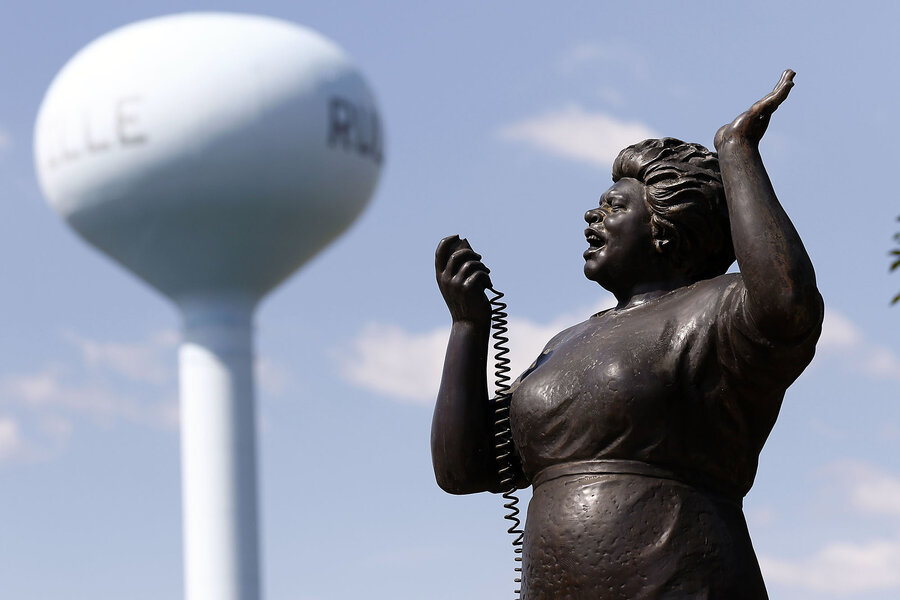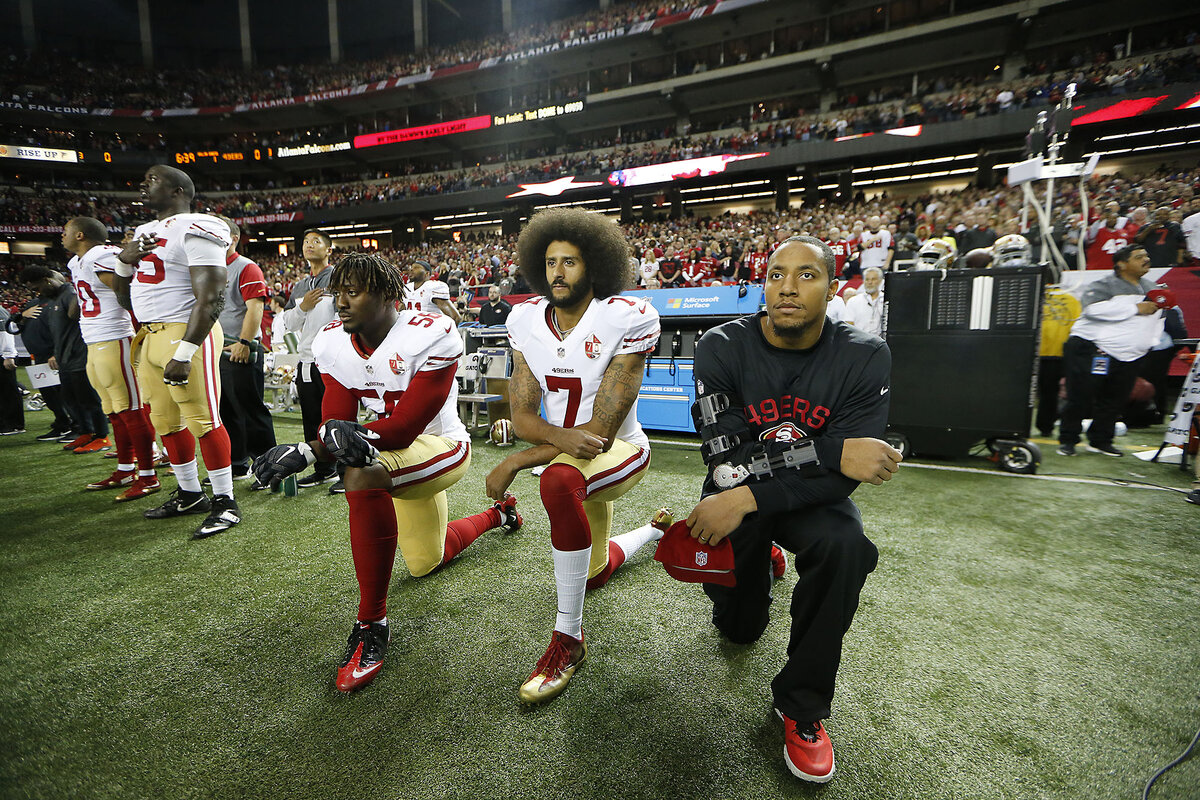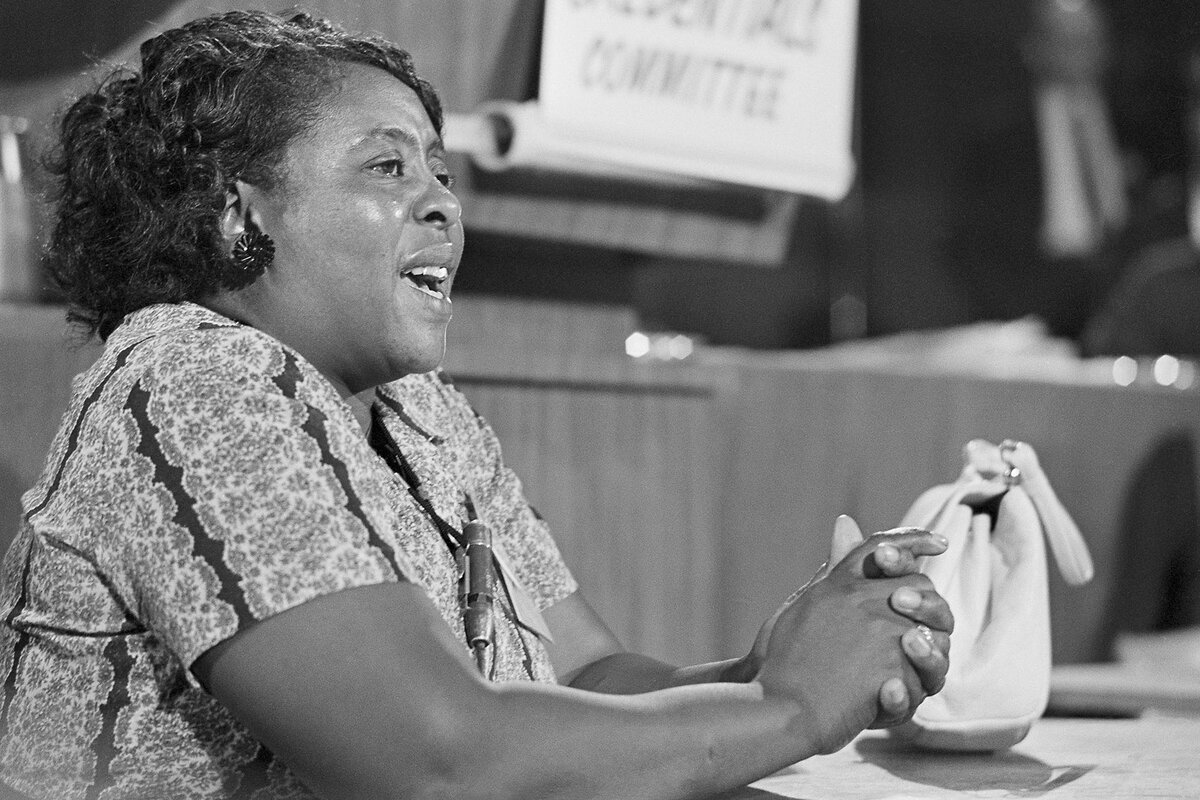Now Reading: Is free speech really free? The First Amendment, US history, and Fannie Lou Hamer.
-
01
Is free speech really free? The First Amendment, US history, and Fannie Lou Hamer.
Is free speech really free? The First Amendment, US history, and Fannie Lou Hamer.

I am often surprised – and in some ways, dismayed – when I hear about the “first Black” person to attain an office or award, because it is reflective of the disparities and opportunity gaps that still exist for Black people. On Monday, that surprise and dismay was reserved for the last Black full-time columnist on The Washington Post opinion pages.
Karen Attiah, an award-winning journalist and professor, was reportedly fired for a series of posts on Bluesky in the aftermath of right-wing activist Charlie Kirk’s death. Ms. Attiah’s commentary focused on “political violence, racial double standards, and America’s apathy toward guns.”
“As a columnist, I used my voice to defend freedom and democracy, challenge power and reflect on culture and politics with honesty and conviction,” Ms. Attiah wrote on her Substack. “Now, I am the one being silenced – for doing my job.”
Why We Wrote This
Journalists and professors are among those who have lost their jobs for remarks they made in the wake of Charlie Kirk’s killing last week. Our columnist was reminded of a political silencing that happened over 60 years ago – President Lyndon B. Johnson’s effort to quiet Fannie Lou Hamer at the 1964 Democratic National Convention.
The Attiah firing, along with MSNBC’s dismissal of Matthew Dowd and the firing of two professors at Clemson University, is representative of the inconsistencies of punishments for free speech.
As NFL teams memorialized Mr. Kirk’s life via jumbotron over the weekend, there were folks who juxtaposed Mr. Kirk’s controversial views with former NFL quarterback Colin Kaepernick’s “taking a knee” to protest police brutality almost a decade ago.

San Francisco 49ers quarterback Colin Kaepernick (7) and outside linebacker Eli Harold (58) kneel during the playing of the national anthem before an NFL football game Dec. 18, 2016, in Atlanta. They were silently protesting police brutality.
Even members of the Trump administration are receiving blowback for their views on “hate speech.” Attorney General Pam Bondi came under fire for a podcast interview with Kate Miller, the wife of White House deputy chief of staff Stephen Miller, in which Ms. Bondi said, “We will absolutely target you, go after you, if you are targeting anyone with hate speech – and that’s across the aisle.”
On Tuesday, after a growing backlash that included some MAGA Republicans, she clarified her remarks in a written statement to Axios, saying, “Freedom of speech is sacred in our country, and we will never impede upon that right.”
I am reminded of a more pointed and political silencing that happened over 60 years ago – President Lyndon B. Johnson’s attempt to quiet Fannie Lou Hamer at the 1964 Democratic National Convention. President Johnson was concerned that Ms. Hamer’s commentary on violent suppression in the South would lose white Southern voters. He called an impromptu news conference to focus the national media on his words and not on Ms. Hamer’s.
The attempt failed, and Ms. Hamer’s words challenged a nation: “Is this America, the land of the free and the home of the brave, where we have to sleep with our telephones off of the hooks because our lives be threatened daily, because we want to live as decent human beings, in America?”
It is a question that endures, and inspires another one: Is free speech really free?

Attorney General Pam Bondi (right), shown with Homeland Security Secretary Kristi Noem in the White House in Washington, Sept. 15, 2025, came under fire for claiming in a podcast interview that the Justice Department would investigate people for “hate speech” in the wake of Charlie Kirk’s slaying. She clarified her remarks Sept. 16, saying she was referring to credible threats of violence.
The Washington Post Guild is standing up for Ms. Attiah in a moment of great social and political upheaval: “The Post not only flagrantly disregarded standard disciplinary processes, it also undermined its own mandate to be a champion of free speech,” the guild wrote in a statement. “The right to speak freely is the ultimate personal liberty and the foundation of Karen’s 11-year career at The Post.
“The Post Guild stands with her and will continue to support her and defend her rights.”
History tells us that when Black voices – diverse voices – are silenced, all marginalized groups suffer, even though those groups are perhaps the greatest champions of freedom.
When Ms. Hamer made the trek from Mississippi to Washington, it was the embodiment of one of her most recognizable quotes: “Nobody’s free until everybody’s free.” Hers was a journey for first-class citizenship, through the right to vote and other essential rights, that had been constantly denied. When she asked for the Mississippi Freedom Democratic Party to be seated at the 1964 DNC, it was the continuing of a nearly centurylong demand from disenfranchised Black Americans.

Fannie Lou Hamer, a leader of the Freedom Democratic Party, speaks before the credentials committee of the Democratic National Convention in Atlantic City, New Jersey, Aug. 22, 1964. President Lyndon B. Johnson counterprogrammed a press conference in an effort to draw attention away from the civil rights activist’s speech.
Clemson’s firing of two professors, while threaded with its own history, is also an interesting case study.
“Clemson University unequivocally condemns any and all expressions that endorse, glorify or celebrate political violence,” the university noted in a statement. “The deeply inappropriate remarks made on social media in response to the tragic murder of Charlie Kirk are reprehensible and do not reflect the University values and principles that define our University community.”
One of the university’s most famous buildings is Tillman Hall, named for Ben Tillman, a white supremacist who participated in two race riots in my home state of South Carolina: the Hamburg and Ellenton massacres. Tillman would go on to attain public office and play a prominent role in the state’s Constitutional Convention of 1895, which turned the brutality of the Ku Klux Klan and lynch mobs into the type of policy that birthed Jim Crow.
“We of the South have never recognized the right of the Negro to govern white men, and we never will,” Tillman infamously said in 1900.
There is a link between Ms. Attiah, LBJ’s actions toward Ms. Hamer, and the legacy of men like Tillman – the intimidation and silencing of Black voices. That legacy reverberates, especially considering this week’s anniversary of the political and physical violence that claimed the lives of four Black girls in a Birmingham, Alabama, church Sept. 15, 1963.
This is the irony of the fallout over free speech in the aftermath of Mr. Kirk’s death. The collective inability to be forthright about this country’s penchant for political violence has claimed lives all across the political spectrum, and still leaves disenfranchised people in harm’s way.




























